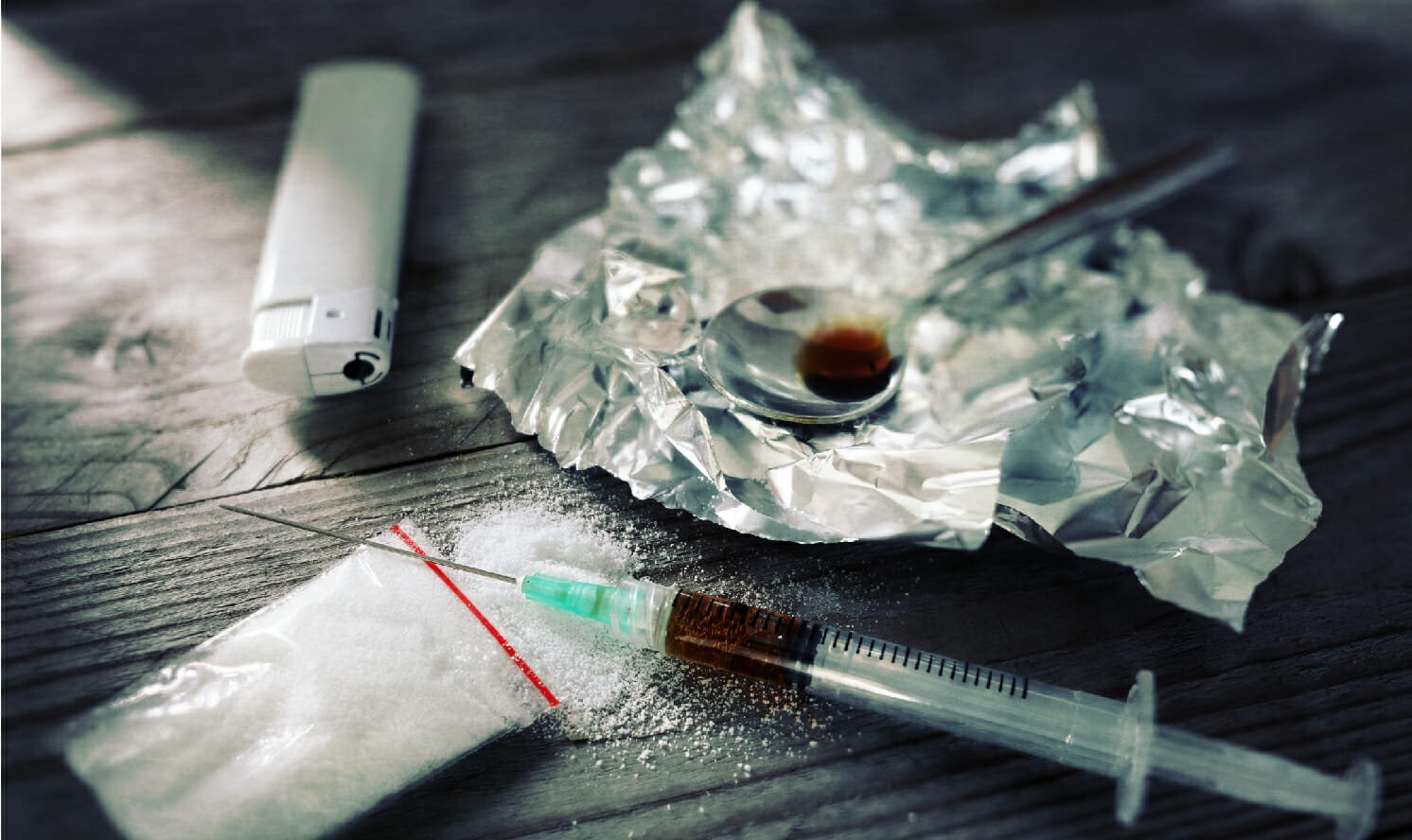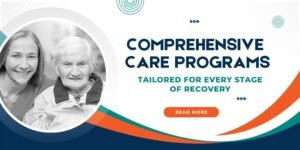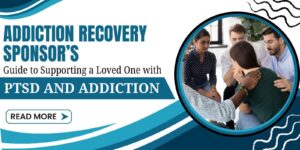Heroin is a strong and highly addictive illegal drug that is fueling the problem of the opioid epidemic in America. Heroin addiction is a growing medical problem in the United States and can have numerous damaging effects on an individual’s life.
A 2020 report by the Centers for Disease Control and Prevention (CDC) says that of the 9.5 million people who misused opioids in the past year, 902,000 people used heroin. To get rid of heroin addiction, individuals can seek expert guidance and timely heroin addiction treatment.
Heroin is a drug obtained from the opium poppy flower. This central nervous system depressant can slow down bodily functions like heart rate and breathing. It is a highly addictive drug, and when combined with stimulants like cocaine, can lead to heart attack or stroke.
Also called smack, brown sugar, horse and junk, the drug belongs to the group opioids. It was made illegal in the United States in 1924. It is available as a brown or white powder or black sticky tar and used recreationally. People also use it to manage pain as it is cheaper than prescription painkillers.
People consume heroin in different ways. The drug can be smoked, snorted or even injected into the veins. The last method is risky as it can give diseases from a dirty needle. Heroin which is injected is usually less pure than the powder that is smoked or snorted.
People addicted to prescription opioids gradually get hooked to heroin because of its highly pleasurable effect. Heroin laced with another addictive drug like fentanyl can cause overdose and even death.
Heroin rehab centers make recovery from heroin addiction achievable. They offer treatment that helps overcome neurological and psychological effects of the drug. While scouting fordrug rehab, you can use the online search option – heroin drug rehab near me – to find a rehab center and do your research to understand whether it suits your requirements.
Heroin addiction treatmentatrehab centers is safe and comfortable. The 24*7 support and care offered as part of the treatment program help avoid relapse and manage withdrawal symptoms.
Heroin is a popular drug among young adults. According to the CDC, there are more than 100,000 new heroin users every year.Many people abusing prescription painkillers switch to heroin for a stronger effect at a cheaper price. Some of the reasons for heroin addiction include:
- Recreational use
- To deal with mental health problems like depression
- To deal with pain by spending less
- To overcome pressure and stress
When heroin enters the body, it binds to receptors in the brain to release dopamine and other neurotransmitters that create a sense of painlessness. Prolonged use of the drug creates dependence on it and changes the hormonal level in the brain, increasing the chance of an overdose. Apart from this, heroin causes many health problems. Some short-term effects of heroin are:
- Nausea, upset stomach
- Dry mouth
- Euphoria
- Heaviness in arms and legs
- A fuzzy brain
- Slows heart rate and breathing
Some long-term effects of heroin are:
- Mental disorders
- Insomnia
- Heart problems
- Liver and kidney disease
- Lung diseases like pneumonia
Our navigators will help you take back control of your life.
When you call our helpline, an admissions navigator is there to listen to you, answer any questions you have, and provide the support that you need—all 100% confidentially.
As per the CDC, around 0.3% of American adults are heroin users. This addictive illegal drug is a major reason behind the surging opioid epidemic in the US.
Heroin misuse should be tackled before it spirals into a full-blown addiction. It might take some effort initially, but it is very much possible to take control of the situation on time. Some tips to overcome the initial dependency on heroin are:
- Join a hobby class or go trekking and hiking
- Overcome stress by being with friends and relaxing.
- Go for physical activity and workouts.
- Enrol in meditation or yoga classes.
- Join cooking classes
- Seek help from a GP if you need a painkiller.
- Do not self-medicate your pain
According to the CDC, drug overdose deaths involving heroin increased from 1,960 in 1999 to 15,469 in 2016. However, the figure for 1999 was 14,019. Considering the gravity of the situation, those addicted to heroin should seek professional treatment so that their relationships and other aspects of life are not affected.
Prolonged heroin use can lead to long-term hormonal imbalance in the brain that might not be easily reversed. It can also impact decision-making abilities. The best way to get your life back is to seek addiction treatment for heroin drug from professional rehab centers. Here are the steps to treat heroin addiction.
The treatment plan for heroin use disorder depends on the severity of the addiction. Factors like higher dose, prolonged use of the drug and other underlying mental health conditions often add to the severity of the problem. Heroin addiction rehab centers assess the situation and then design an effective treatment program on the basis of the individual’s condition.
A successful treatment journey starts with a guided heroin detox program followed by medication and therapy to address the psychological and neurological effects.

Detox is the first step in the treatment of heroin addiction. The process allows the body to eliminate the drug in a safe environment, setting the stage for recovery. Detox also helps manage the withdrawal symptoms and rein in the drug craving.
Detox done under medical supervision helps to manage the physical dependence on heroin, its related withdrawal symptoms, and the chemical changes in the body. Medical detox also helps avoid relapse and take care of other complications due to dependence on alcohol or another drug.
When individuals quit using heroin, they experience uncomfortable symptoms because the body builds a tolerance to the opioid. Gradually, the body starts depending on it and the brain cannot function without it. These withdrawal symptoms can be so painful that individuals might continue using the drug only to avoid these side effects. The symptoms can last for weeks, months or years depending on the severity of addiction and co-occurring mental health problems. Some of the heroin withdrawal symptoms are:
- Depression
- Insomnia
- Anxiety, restlessness
- Muscle spasms
- Agitation
- Tremors
- Nausea, diahrrea
- Abdominal cramps
- Fatigue
- Muscle and bone aches
Check to see if your insurance is in-network at an American Addiction Centers location
We’ll instantly check the coverage offered by your insurance provider.
The most effective treatment for heroin addiction is medication-assisted treatment (MAT) which combines medication with behavioral therapy. Medications help reduce cravings by weaning the body off heroin.
The US Food and Drug Administration (FDA) has approved medicines buprenorphine, methadone and naltrexone for opioid addiction treatment. Buprenorphine and methadone work like heroin and bind to the opioid receptors in the brain. The former helps reduce cravings, while the latter is a slow-acting opioidthat creates a milder ‘high’ associated with substance addiction. Naltrexone blocks these receptors so that the patient does not enjoy the effect of the opioid. Gradually the patient can free themselves from the clutches of heroin.
Medication is followed by therapy – cognitive behavioral therapy (CBT) and contingency management. CBT helps patients learn coping mechanisms to stay away from triggers. Contingency management offers voucher-based ‘points’or money to encourage drug-free healthy living.
Recovery from heroin addiction is a long-term process. If proper discipline is not adhered to post-treatment phase, there is a high chance of relapse. Thus, as part of after-care services, therapy and counselling sessions and support programs after the treatment help maintain abstinence and learn coping mechanisms. These programs also help tackle other co-occurring mental illnesses and other changing requirements.
Overcoming heroin addiction can become a reality by seeking professional treatment from qualified doctors and counsellors at heroin addiction rehab centers. Round-the-clock care and support and structured treatment programs play a significant role in helping patients come out of the grip of this dangerous drug.
The rehab centers are also equipped to take care of polydrug use problem or any underlying mental health problems. An assessment and analysis of the situation help decide the type of rehab program. The rehabs also provide aftercare services once the patient gets discharged which helps increase the chance of recovery, prevent relapse and lead a healthy and drug-free life.
Factors like severity of heroin addiction and presence of other co-occurring disordershelp in deciding the type of rehab program. It can be either an inpatient heroin rehab, an outpatient heroin rehab or a partial hospitalization program. Let’s look at the programs.
In an inpatient heroin rehab or a residential treatment program, individuals live in a hospital or a clinic while receiving the treatment. The 24*7 monitoring and care from doctors, nurses and other experts pave the way for long-lasting sobriety. Here, individuals get to focus on recovery because of the absence of any contact with the outside world. The residential program is a better option for patients suffering from severe addiction or dual diagnosis. Individuals who wish to receive addiction treatment for heroin drug without forgoing the luxuries of life can also opt for a luxury rehab facility.
Outpatient heroin rehab is another option for recovering addicts who want a flexible treatment schedule because they have other professional and family responsibilities to manage. This kind of setup is cheaper than inpatient as patients visit the rehab on certain days for treatment.It works well for people with less severe addictions or who have attended inpatient rehab programs before. Patients benefit from the tailored treatment offered under a hospital setup.
In a partial hospitalization program (PHP), patients do not get to spend time in a hospital setup. They visit the rehab during the daytime for intense therapy and stay home at night. The program offers high-level and individualized support and care that play a critical role in achieving sustained sobriety. This treatment setup is a good option for individuals who have already attended an inpatient rehab program for heroin use disorder. Individuals can go for PHP if they do not suffer from dual diagnosis or are not addicted to another drug.
Heroin addiction is so dangerous that if left untreated, it has the potential to destroy a person’s life. To rein in the dependence on time, take an online self-assessment test that indicates your growing opioid addiction problem. The test lets you assess the level of dependence on heroin and the severity of the use disorder. It gives you a chance of recovery by helping you understand your problem so that you can seek timely help from a reputed rehab center.
You might wonder what to do if you think someone is using heroin. The first step is to make them accept that they have a heroin problem for which they need professional treatment at a rehab center. After selecting a suitable rehab program, support your family member or a loved one during and after the treatment process.
As supportive family members, learn about the signs and symptoms of heroin addiction and its effect on the patient. Always motivate and encourage the loved ones during the recovery process and be a part of the support groups and counselling sessions to help them stay away from triggers. Try to have a calm atmosphere at home and avoid friction of any kind.
To help an individual struggling with heroin misuse, encourage them to opt for treatment at a heroin rehab center and do not make them feel guilty. Get hold of available resources to learn about this addictive opioid and its damaging impact on the mental and physical health of the user. Learn about the signs and symptoms of heroin addiction and the different rehab programs available for treatment. Also, take good care of yourself when helping the addicted person get back on track.









